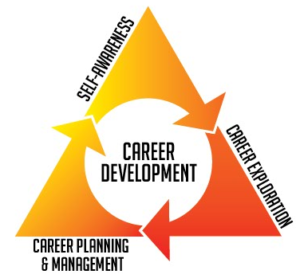Career & Academic Assessments
Career and academic assessments identify strengths from a variety of perspectives to find careers that are the best-fit.
What do you need to know?
Career and academic assessments help students to consider aptitudes, achievement and verify career interests, career skills or work values. It is one way to increase self-awareness at different times in the career development process. Results of assessments provide a set of information to consider while exploring careers, making career decisions and creating a Personal Learning Plan (PLP).
The career development process involves continuous evaluation of academic and career maturity while focusing on strengths and a growth mindset. Academic achievement testing is already built into the education system. Academic test results are a factor in career decision-making. The goal is to find themes or similar patterns of results in a collection of both academic and career assessments over time. Consistent results over time are strong indicators of a good fit for career and postsecondary education selections.
Now, another part of the story...
While there is no doubt career assessments are an important feature of quality career development programs, they are only one category of career information for making decisions. It is true, formal and informal assessments help students to verify self-awareness characteristics and focus career exploration. However, we offer a word of caution about a career assessment mentality boiled down to, “test them and tell them.” Never jump to the conclusion that one assessment will tell a student exactly what to do. The best practice, just like academics tests, is multiple measures over time.
All assessment results require interpretation. It is essential the student and parents understand what the results do, and do not indicate. Without results interpretation from a knowledgeable career counseling/educator professional, incorrect conclusions may be made, which can be harmful to the student.






